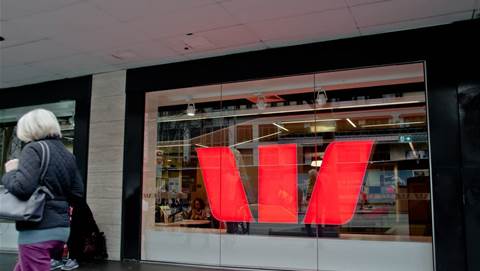ANZ Banking Group is set to resume a larger program of work around how it prepares and stores contracts, after needing to carve out a small piece of the work related to e-signatures during the pandemic.

Procurement operations manager Samantha Morey told SAP’s procurement reimagined summit that the bank had been working on a project that would give internal staff more control over certain elements of its SAP Ariba platform, which is managed by a third-party.
“We currently have a third party who manages Ariba for us and provides us that service delivery model, so our sourcing and category managers don't interface directly with Ariba that much,” Morey said.
“Initially, this was a project to get them more involved in Ariba, to be able to create their own contract workspaces, and digital signature was just going to be put in there as part of that implementation and part of that project.”
However, Morey said when the pandemic was accompanied by an indefinite work-from-home arrangement, the bank needed a way to digitally sign documents and orders a lot faster.
“We decided to quickly pivot and just launch DocuSign on its own as a standalone app,” Morey said.
“That just allowed us to quickly stand up something that meant that people were able to get contracts signed without needing to have printers and scanners, and this was done a lot faster than our normal implementations.
“However, there was a real business need, and we were in a mode of quickly standing up a whole heap of different things to make sure that we could continue working.”
Morey said there was immediate demand for goods and services across several procurement categories, where contracts needed to be quickly signed and executed.
The bank had “a number of people overseas on business trips or interstate, so our travel team had to get them home very quickly,” Morey noted.
It also needed to quickly procure personal protective equipment (PPE), particularly for frontline staff, and extra cleaning services for its buildings.
“The best way that we could support those category and sourcing teams was to make sure that they had a way to get their contract signed, and that they didn't need to necessarily try and find somewhere that had a printer and a scanner and it was just becoming something that was not going to be practical or even possible really,” she said.
“We quickly stood up DocuSign and that really helped get them what they needed at the time and still does help them get what they need.”
Morey said the use of DocuSign isn’t mandatory but was taken up quickly internally.
She also said the bank adopted a phased approach to the types of agreements that could be digitally signed.
This was in part while it waited for legislative changes such as those in Victoria which clarified the types of documents that could be electronically signed.
“The Victorian Government clarified some wording around digital signatures in the legislation which meant that we were able to open it up to a lot more contract types,” Morey said.
“Anything can really be digitally signed at the moment as long as it's not a deed.”
Morey also said ANZ procurement was able to lean on a team in India to help coordinate the signing of business-sourced contracts.
“Especially during Covid, a lot of these things were new - urgent services or goods that were needed quite quickly, so [India] were great in helping with that,” she said.
Having stood DocuSign up quickly in a standalone capacity, Morey said the bank is now looking at using it more broadly in other countries regionally where it maintains business operations.
ANZ is also now starting to return to its original intent around DocuSign, where it would be more tightly integrated with Ariba.
“Going forward, the main thing will be to see how we can get this integrated with Ariba,” she said.
“That's still the plan, that's still how we would ideally like to use it.”
Morey continued: “We really had quite a traditional way of managing contracts or storing them and indexing them.
"They were signed with a wet signature, they were sent to a scanning centre, and they were uploaded into Ariba, where we had a lot of different fields that asked a lot of different questions about what was in the contract. That's fine but really it's quite manual and it takes a long time.
“Moving towards digital signatures at least allowed us to have a digital document that could be searched and it was much easier to find things in.
“Moving forward, we want to take that another step further and start using contract authoring and a clause library, so that we can get real data on what's in our contracts.
“Being in the banking industry, we need to be able to say ‘these contracts have these clauses’ and we need to make that as efficient as possible.”



_(22).jpg&h=140&w=231&c=1&s=0)
.png&h=140&w=231&c=1&s=0)
_(20).jpg&h=140&w=231&c=1&s=0)



_(26).jpg&w=100&c=1&s=0)

 iTnews Executive Retreat - Security Leaders Edition
iTnews Executive Retreat - Security Leaders Edition











_(1).jpg&h=140&w=231&c=1&s=0)



